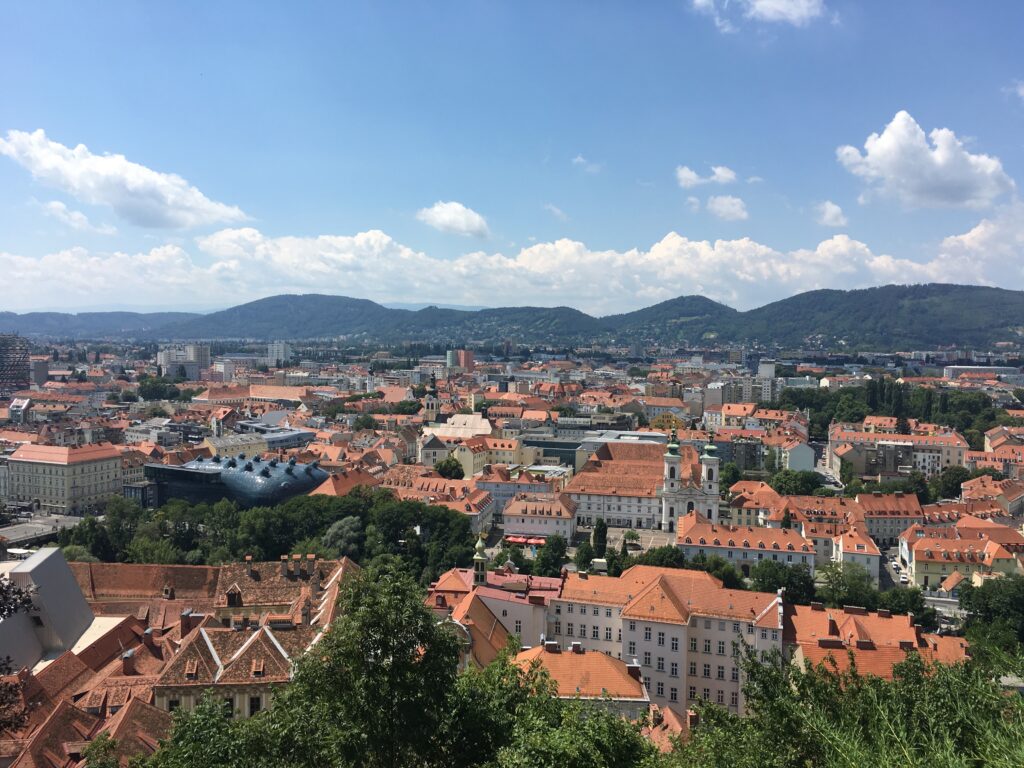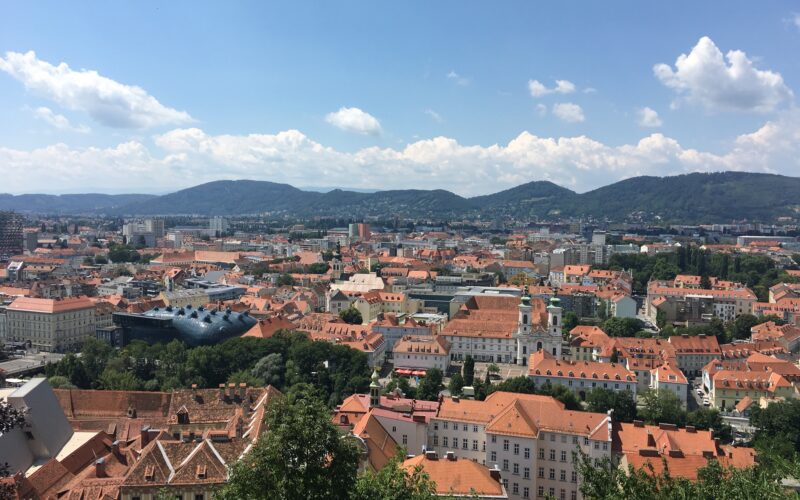Kate VanDyke

My mom frantically waved goodbye as I looked out the window of the train. I was 16, and traveling eight hours across Austria to visit my best friend, Anna, whom I met when she was an exchange student in my hometown. I did not know any German, and I never traveled this far by myself.
Anna lives on a farm in a small town by the name of Nestelbach, which is in the district of Graz, in the Austrian state of Styria.
I gazed out the window as the train passed through the rolling Alps. I began to feel frantic that I was living with my best friend’s family for an entire month, yet did not know anything about the language beside a failed attempt at Rosetta Stone.
Classic American, I thought. I hoped that I could defy the rest of the stereotypes about the “Traveling American.” But the language barrier? That was going to be difficult.
When I reached the train station in Graz, her entire family was waiting to greet me with open arms. I greeted everyone with a very excited “Guten Tag!” to which the whole family laughed, as this is a very formal way to say hello in German, one of which they do not use often.
Half of Anna’s family spoke English, the other half did not. When I arrived at her home, I was greeted with a beautiful meal. Anna’s grandma, Oma, lives with their family, and her aunt, uncle, and cousins live across the street.
I was originally very nervous to sit down at a table where I was their guest, yet did not speak their language. Yet they were all so welcoming and understanding, and I immediately felt comfortable through their kind eyes and gestures.
Anna’s family took me under their wing, and I experienced all the amazing things their tight knit town has to offer. I was the first American that many of the people I was introduced to met, so I wanted to leave a positive impression.
As the weeks progressed, I grew close to Anna’s family. They practiced their English with me, and were willing to learn. They also worked to teach me German, and although I could not always get the pronunciation right, I tried to learn as many phrases and sentences as possible during the timeframe I was there.
When my month in Graz had come to an end, I felt devastated to leave. Despite the language barrier, Anna’s family treated me like a family member of their own. They took me to church and events in the town, introduced me to their close friends and family, and were just as curious to learn about my life and language as I was theirs.
In just one month, I gained a second family in Austria. As I prepared to leave, I was approached with many teary goodbyes. I never thought I could feel so welcomed and loved by a family whose language I did not speak.
Language is not the only way we can form close bonds. Before my time in Austria, I never realized the full extent to which it was possible to learn so much about a family and a culture, without fully being able to communicate by speaking each other’s languages.
I became a wiser, more thoughtful human being by spending time with such a tight knit and generous family, and I count the days until I can return again.

